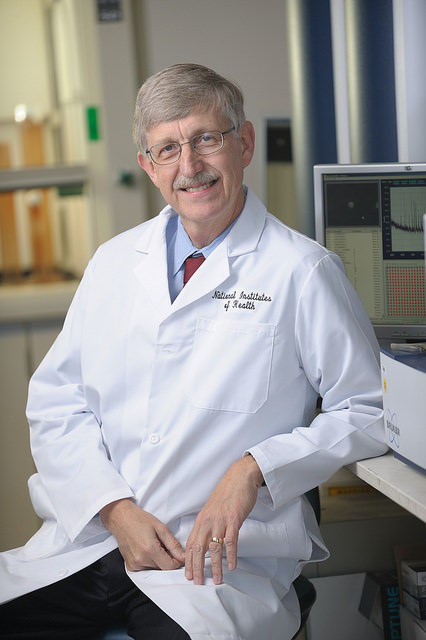An ‘epic scientific misadventure’: NIH head Francis Collins ponders fallout from CRISPR baby study
By Jon Cohen,
Science
| 11. 30. 2018
“Should such epic scientific misadventures proceed, a technology with enormous promise for prevention and treatment of disease will be overshadowed by justifiable public outrage, fear, and disgust. NIH does not support the use of gene-editing technologies in human embryos.”
A “profoundly unfortunate,” “ill-considered,” “epic scientific misadventure” that “flout[ed] international ethical norms” and was “largely carried out in secret” with “utterly unconvincing” justifications. Those are the words in a statement issued by Francis Collins, head of the U.S. National Institutes of Health (NIH) in Bethesda, Maryland, in response to the claim by He Jiankui of the Southern University of Science and Technology in Shenzhen, China, that he used CRISPR to genetically modify two embryos, resulting in the recent birth of twin girls.
The scathing condemnation from the typically measured NIH chief, who has done landmark genetic research himself, came hours after He first described his work at the second International Summit on Human Genome Editing in Hong Kong, China, on Wednesday. “The need for development of binding international consensus on setting limits for this kind of research, now being debated in Hong Kong, has never been more apparent,” Collins wrote.
The next day, the meeting’s prominent organizing committee—convened by academies of science and medicine from the United States, the United Kingdom, and Hong Kong—issued its own statement about what it...
Related Articles
By Diaa Hadid and Shweta Desai, NPR | 01.29.2026
MUMBRA, India — The afternoon sun shines on the woman in a commuter-town café, highlighting her almond-shaped eyes and pale skin, a look often sought after by couples who need an egg to have a baby.
"I have good eggs,"...
By George Janes, BioNews | 01.12.2026
A heart attack patient has become the first person to be treated in a clinical trial of an experimental gene therapy, which aims to strengthen blood vessels after coronary bypass surgery.
Coronary artery bypass surgery is performed to treat...
By Staff, ScienceDaily | 01.05.2026
Scientists at UNSW Sydney have developed a new form of CRISPR technology that could make gene therapy safer while also resolving a decades-long debate about how genes are switched off. The research shows that small chemical markers attached to DNA
...
Following a long-standing CGS tradition, we present a selection of our favorite Biopolitical Times posts of the past year.
In 2025, we published up to four posts every month, written by 12 authors (staff, consultants and allies), some in collaboration and one simply credited to CGS.
These titles are presented in chronological order, except for three In Memoriam notices, which follow. Many more posts that are worth your time can be found in the archive. Scroll down and “VIEW...




